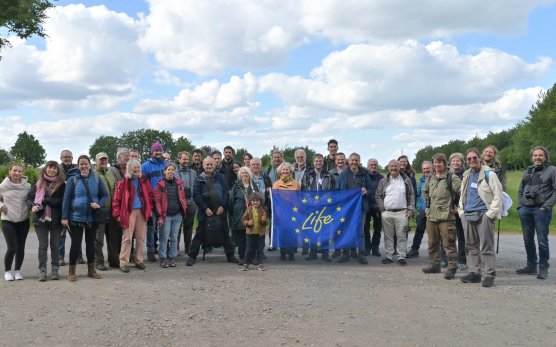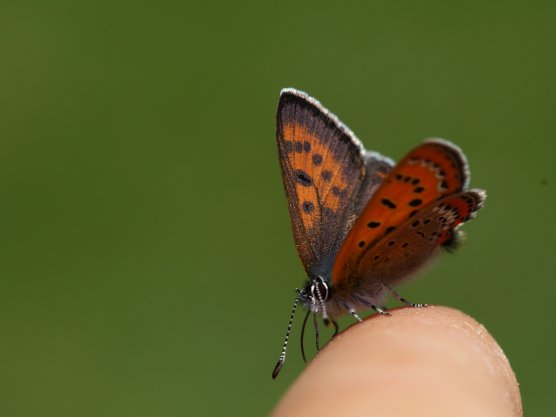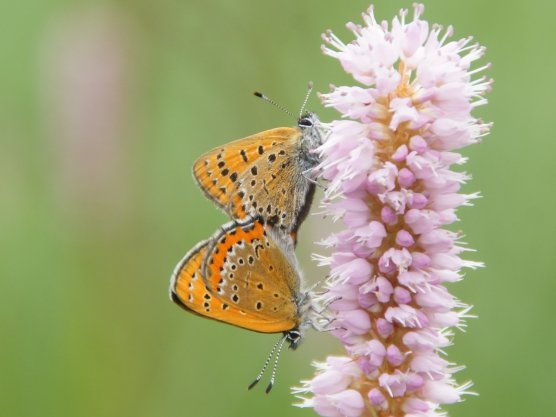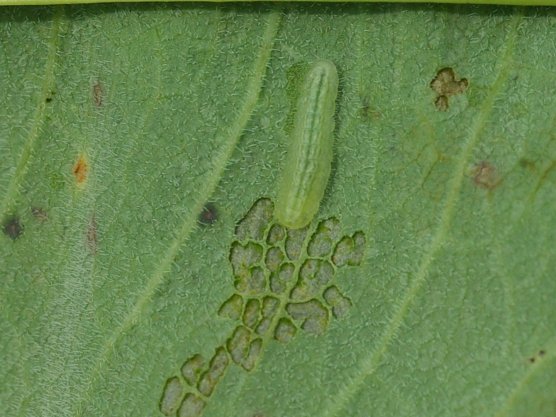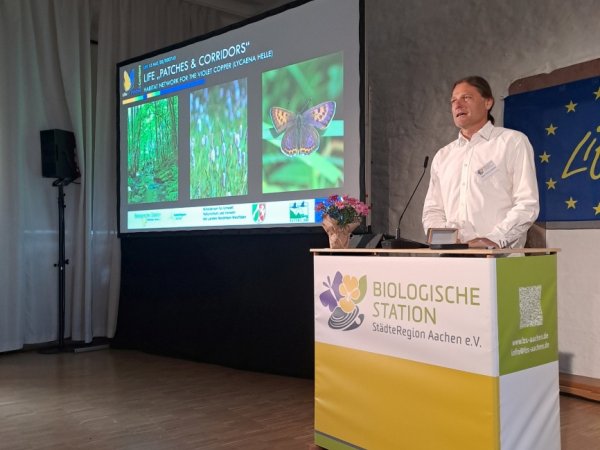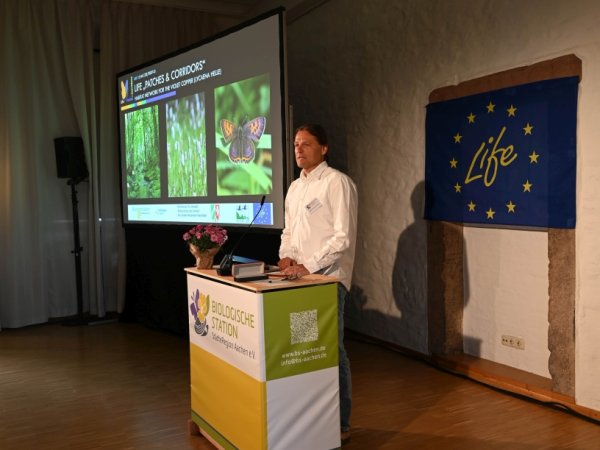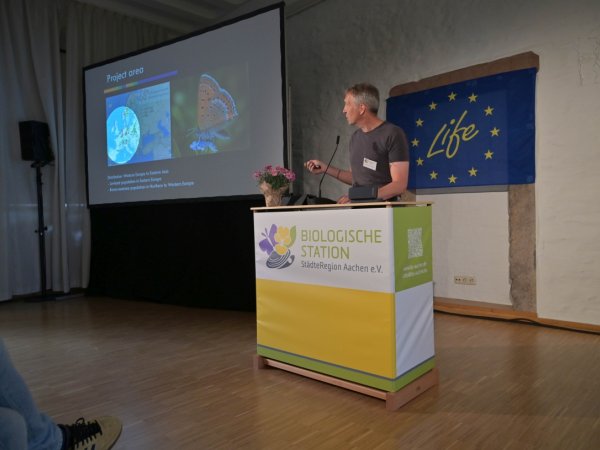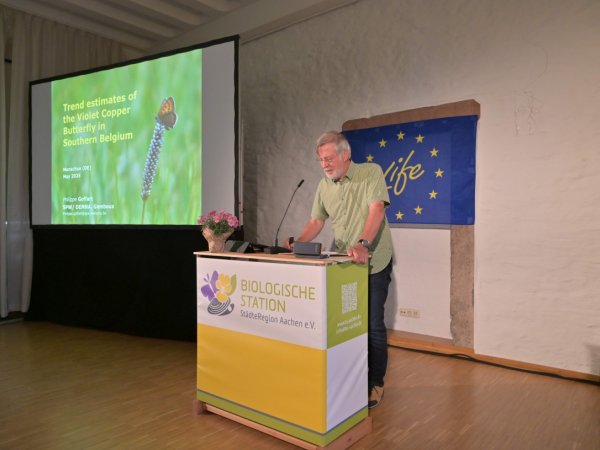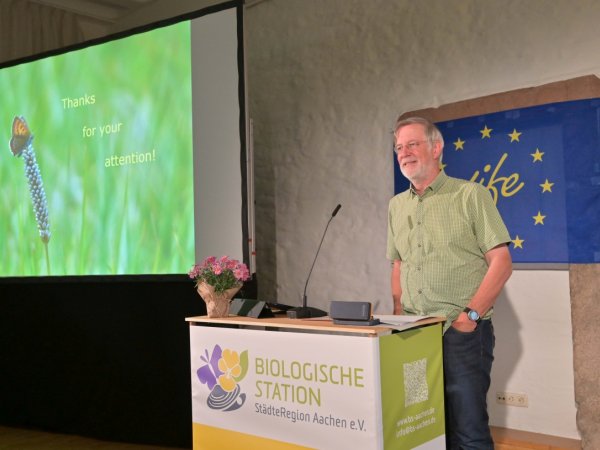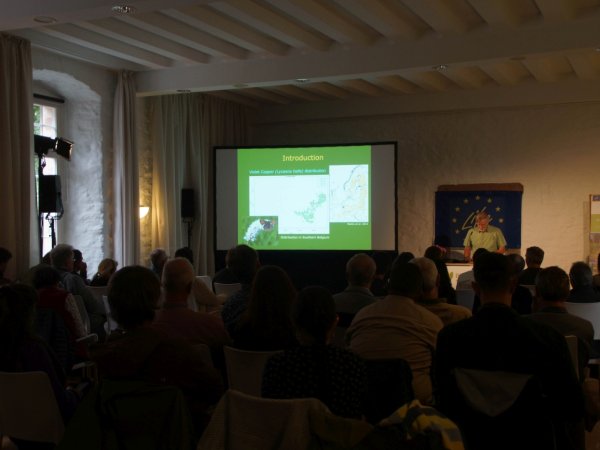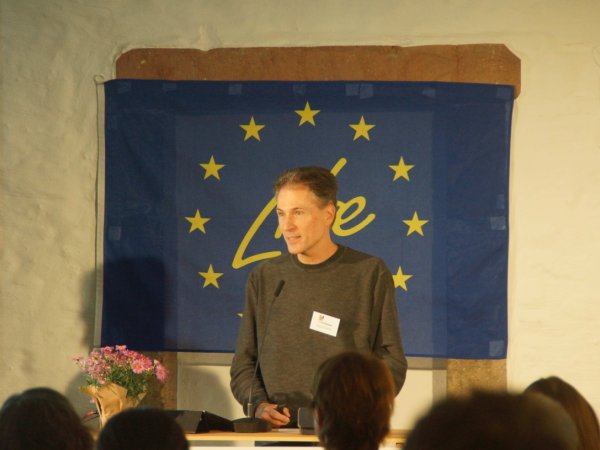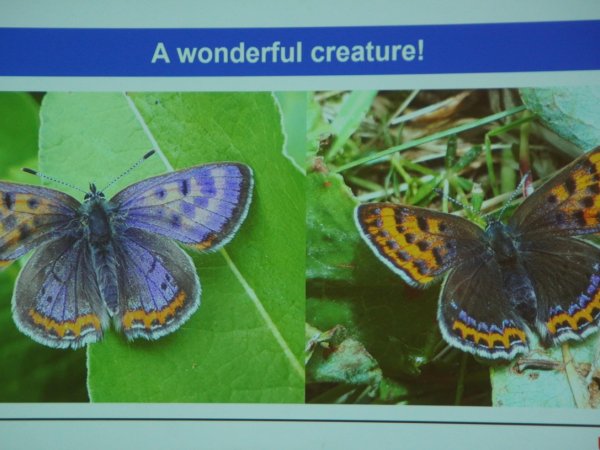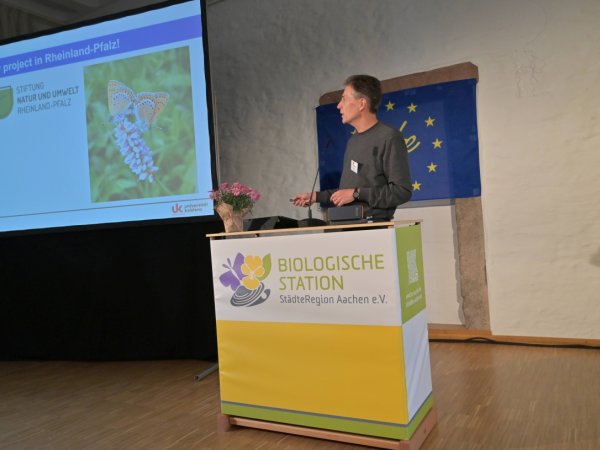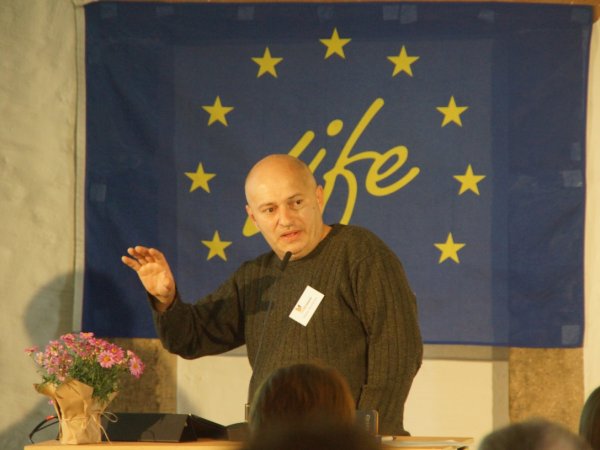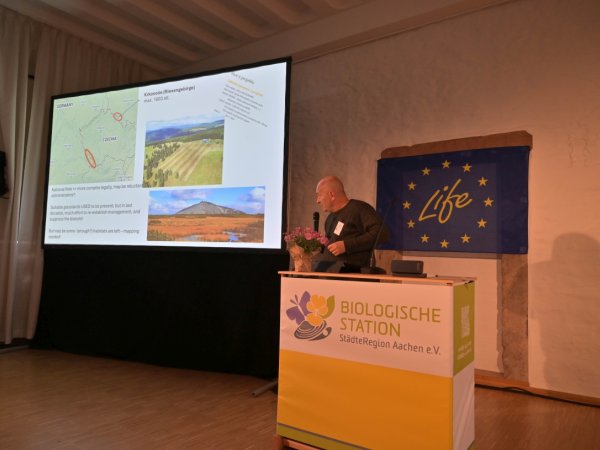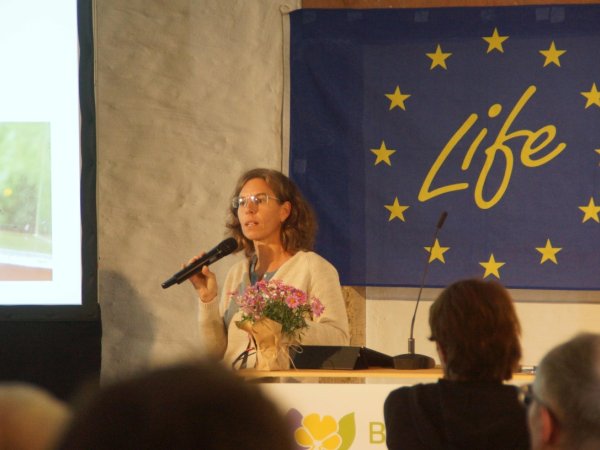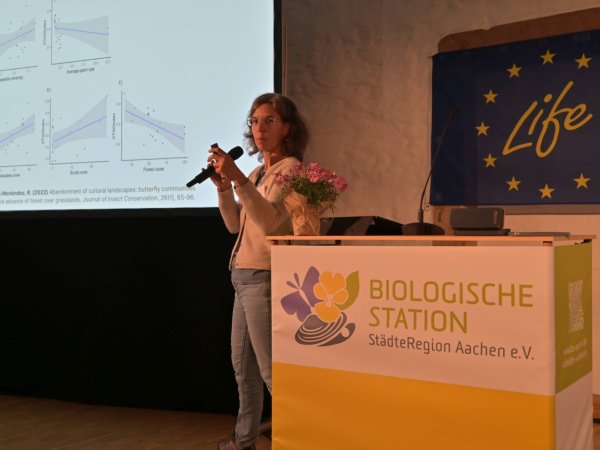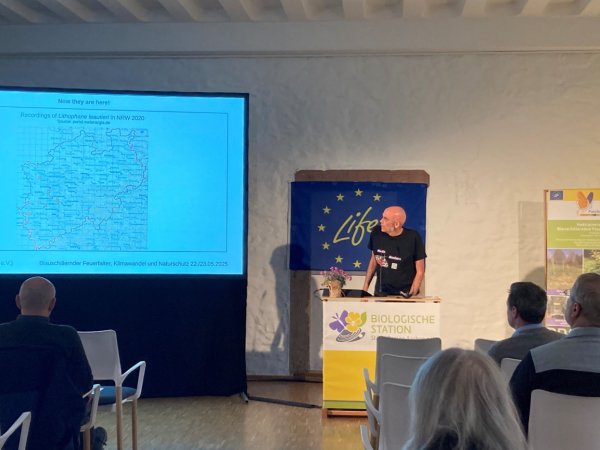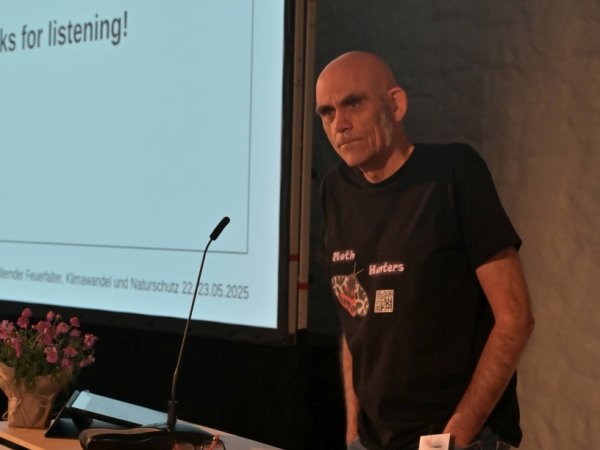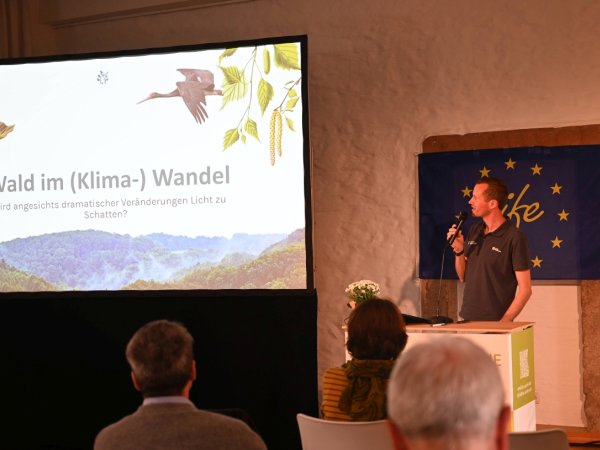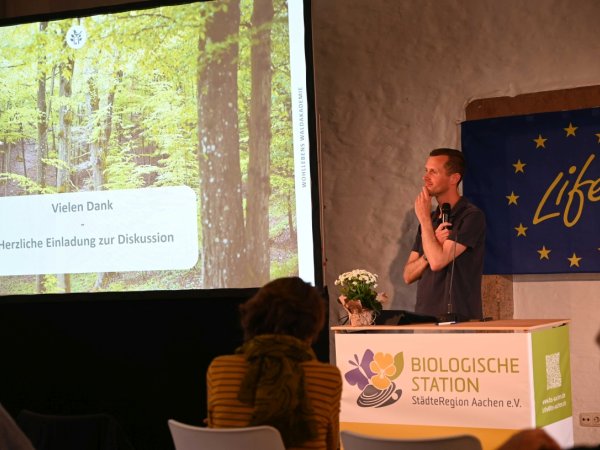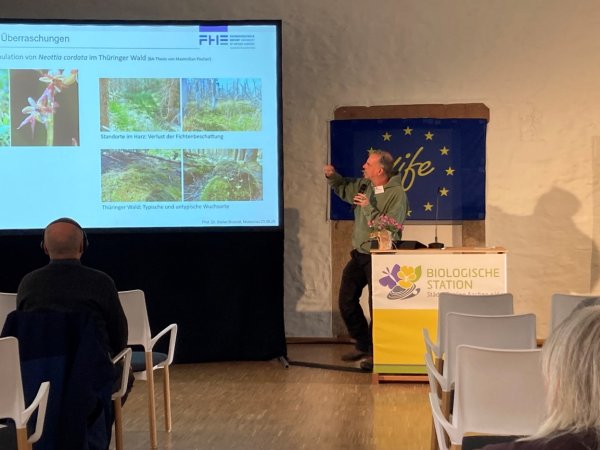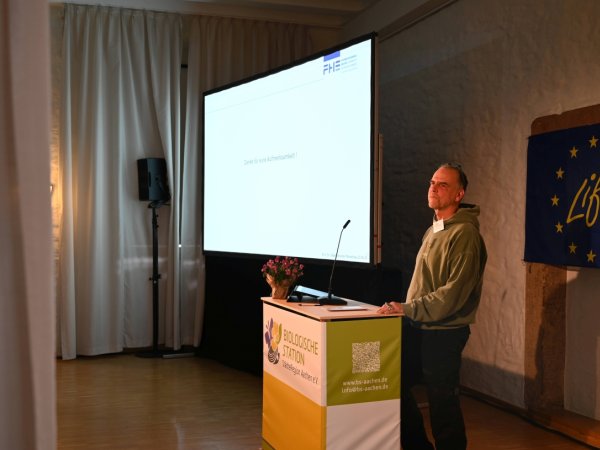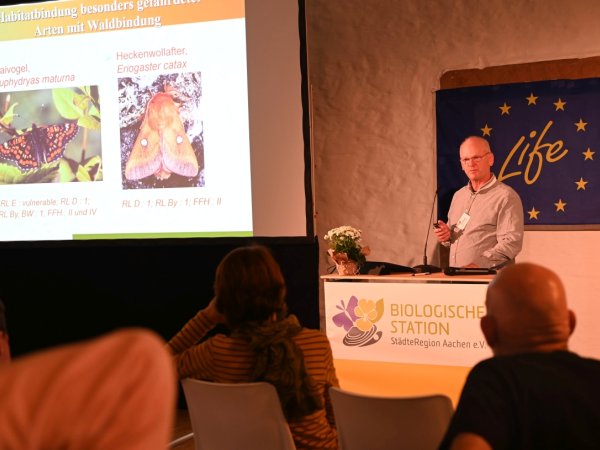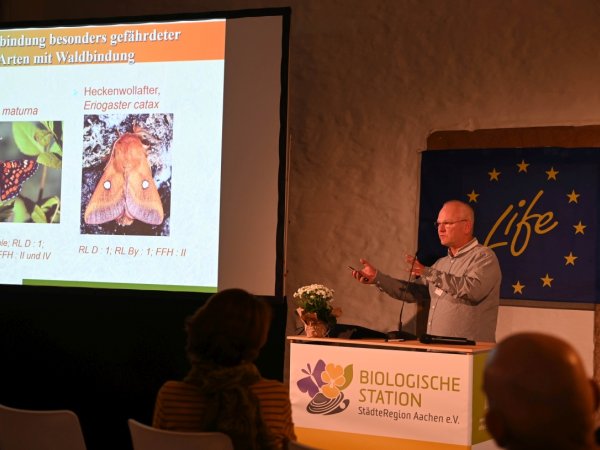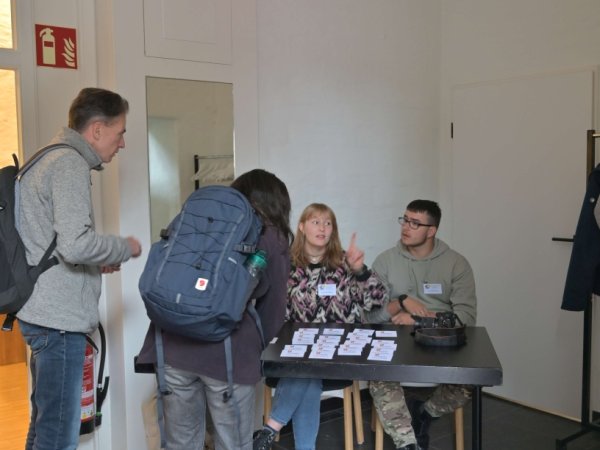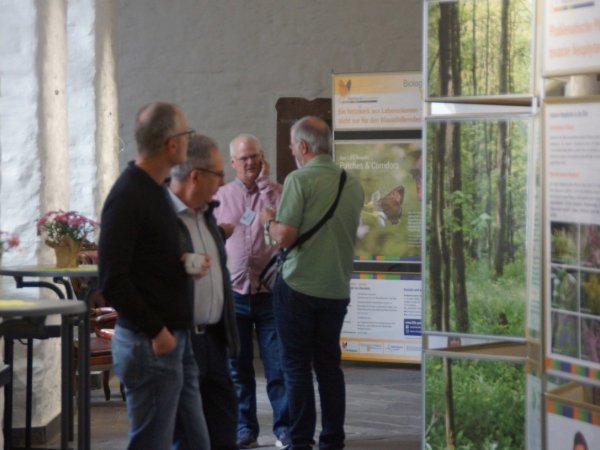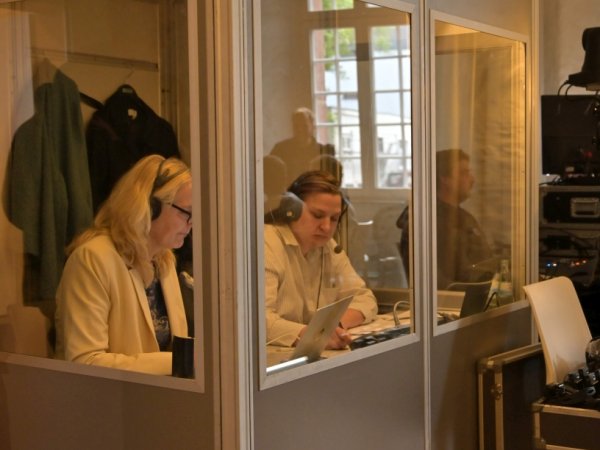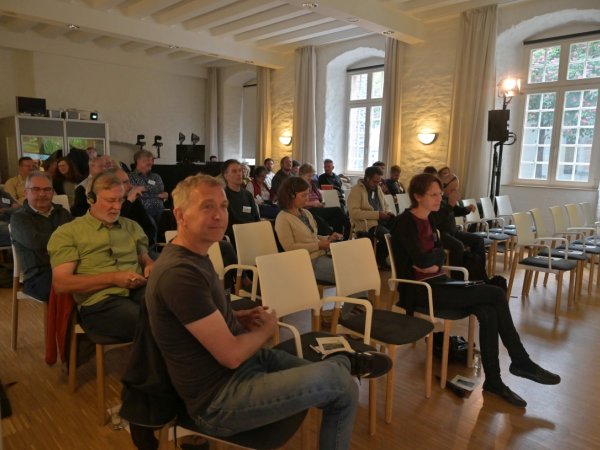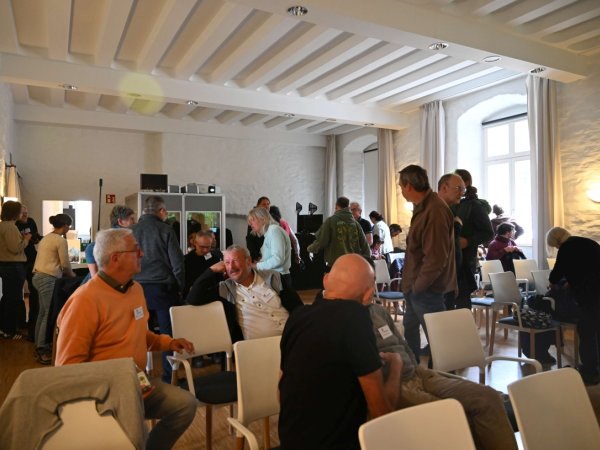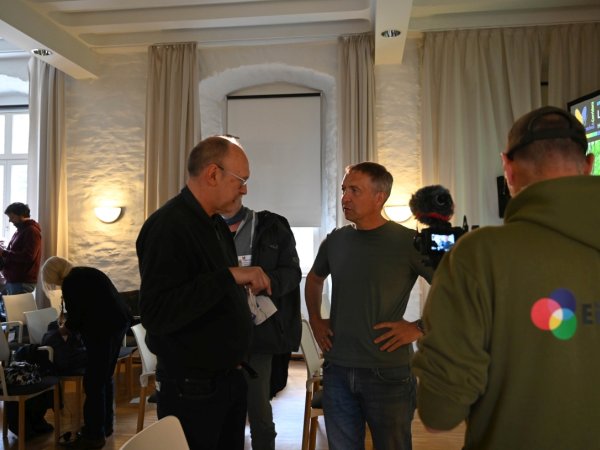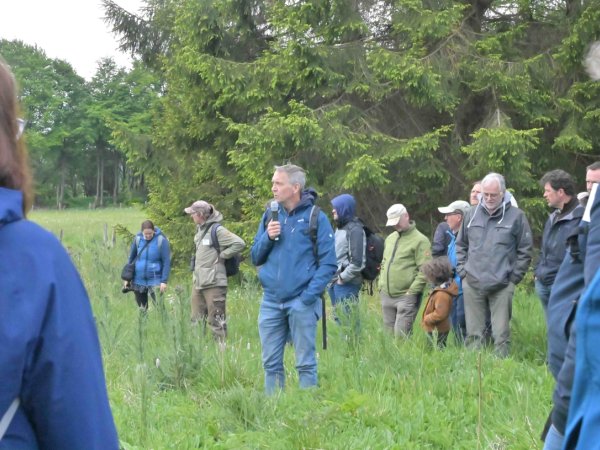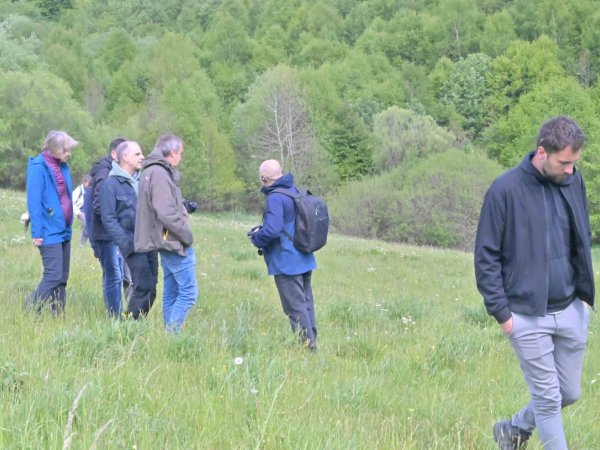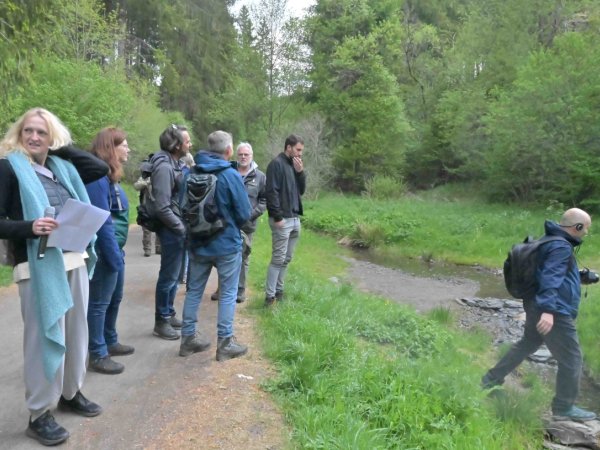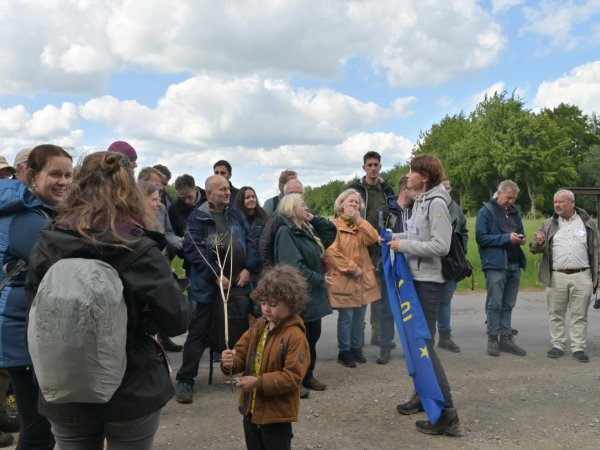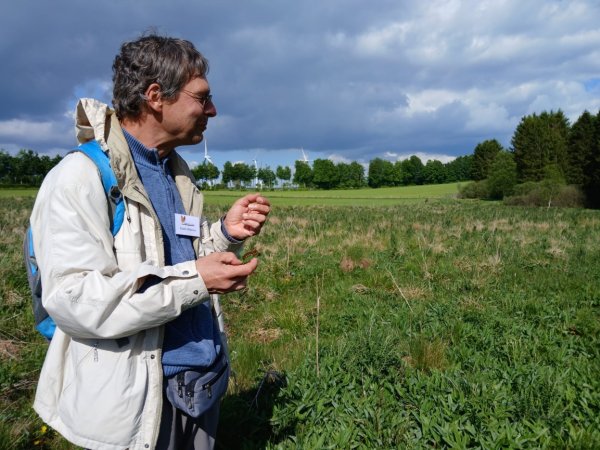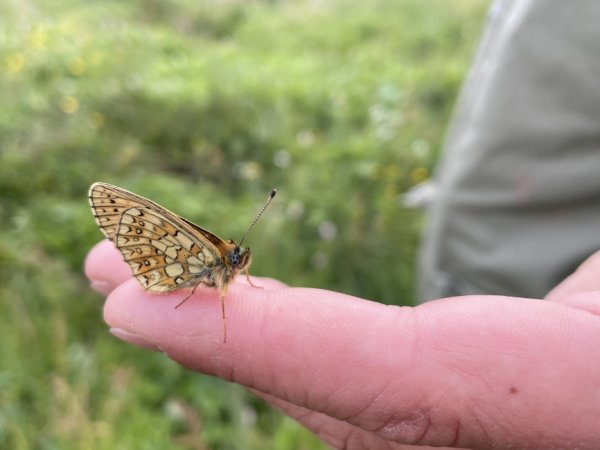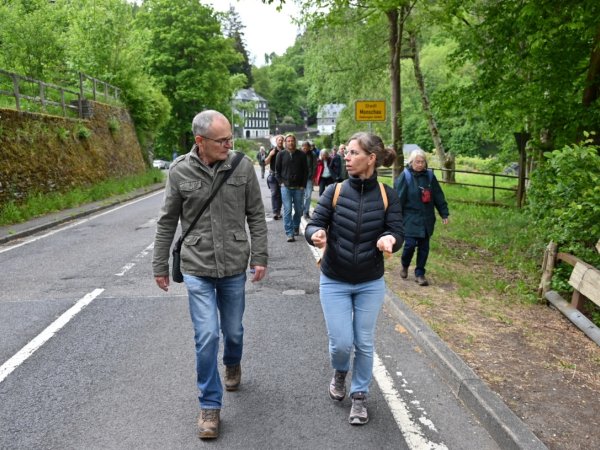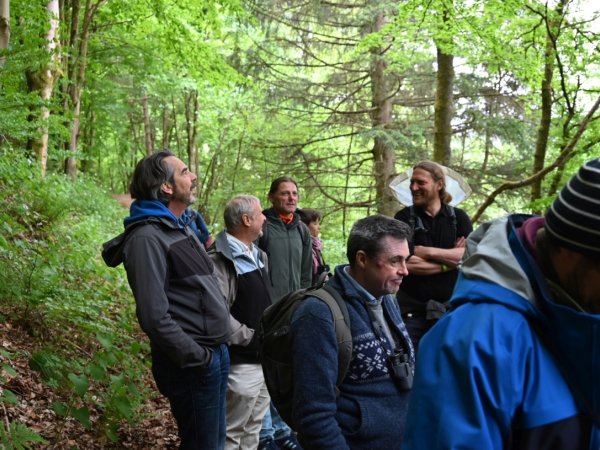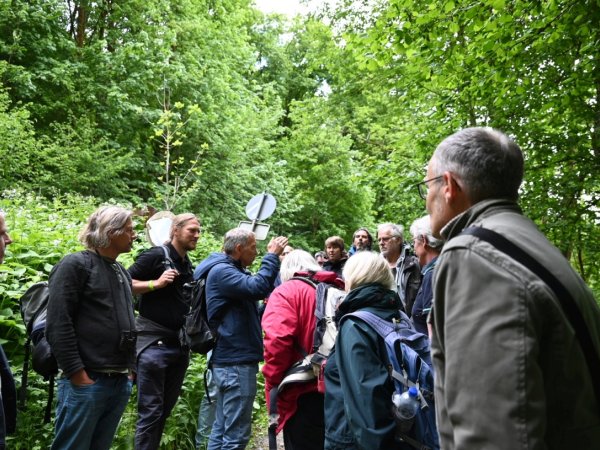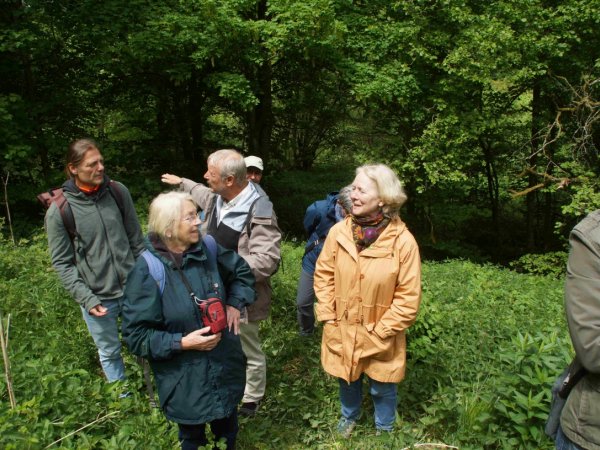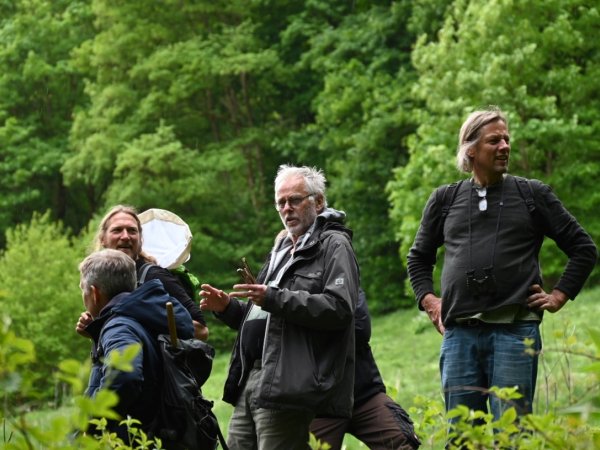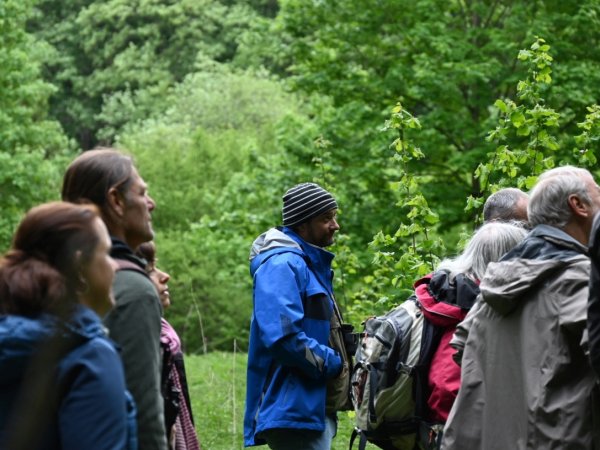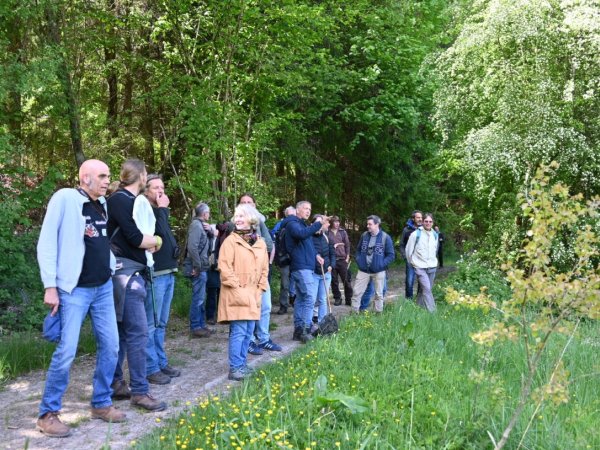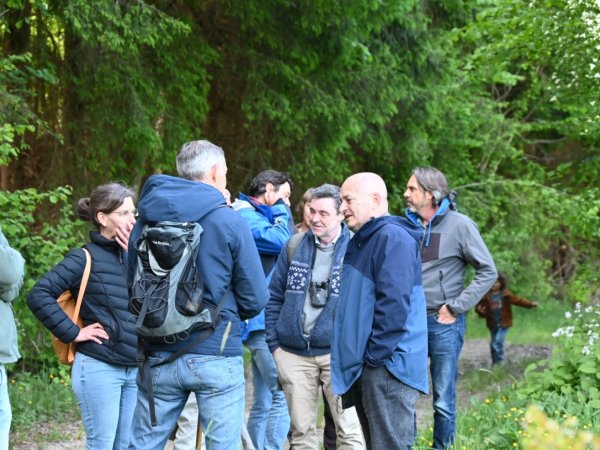
Development of a habitat network for the Violet Copper

International symposium on the EU-funded Life project ‘Patches & Corridors’ took place in Monschau
May 28, 2025
Protection concepts and causes of threats were presented and discussed, above all the possible effects of climate change. The cross-border nature of this problem was the decisive reason for inviting scientists from other European countries to speak.
The first day was dedicated to the project's flagship species. Presentations on the Violet Copper were given by Phillipe Goffart, scientist in the public service of Wallonia/Belgium, Prof. Dr Klaus Fischer from the University of Koblenz/Landau, Dr Martin Konvicka, head of the Laboratory of Temperate Biodiversity in Budweis/Czech Republic and Dr Amparo Mora from Lancaster University in England and the Picos de Europa National Park/Spain. All contributions to the conference were broadcast online in two languages and thus made available to an international community of interested conservationists.
The second day of the event focussed on the impact of climate change on butterflies, habitats and biotopes. The contributions came from Dr Armin Radtke - a volunteer lepidopterist from the Melanargia e.V. association (formerly Rheinisch-Westfälische Lepidopterologen), Prof. Dr Stefan Brunzel from Erfurt University of Applied Sciences, Patrick Esser from Wohlleben's Waldakademie and Dr Matthias Dolek from the Geyer & Dolek office for ecological research and planning.
In the afternoon, the project team took the guests on field trips to the most important habitats of the Violet Copper at the Rur and Perlenbach rivers.
The event was characterised by a lively exchange between all guests, who had never met in such a constellation before. A key outcome of the conference is that, in the long term, the detrimental changes in living conditions for animal and plant species can only be counteracted on a large scale. The loss of biodiversity must be stopped through cross-border cooperation between research and nature conservation.


